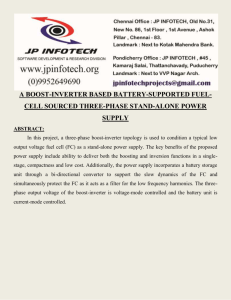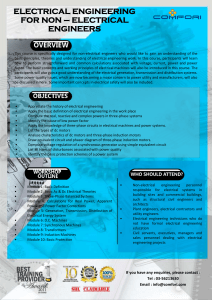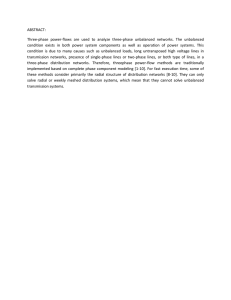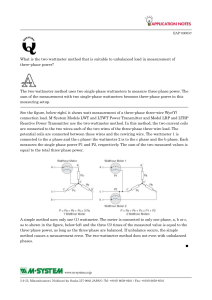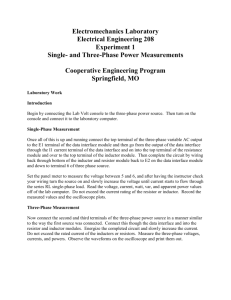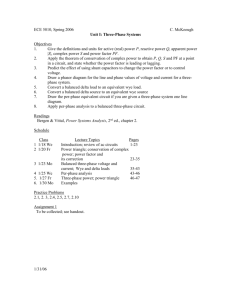Switch to Three-Phase Electricity, if Available
advertisement
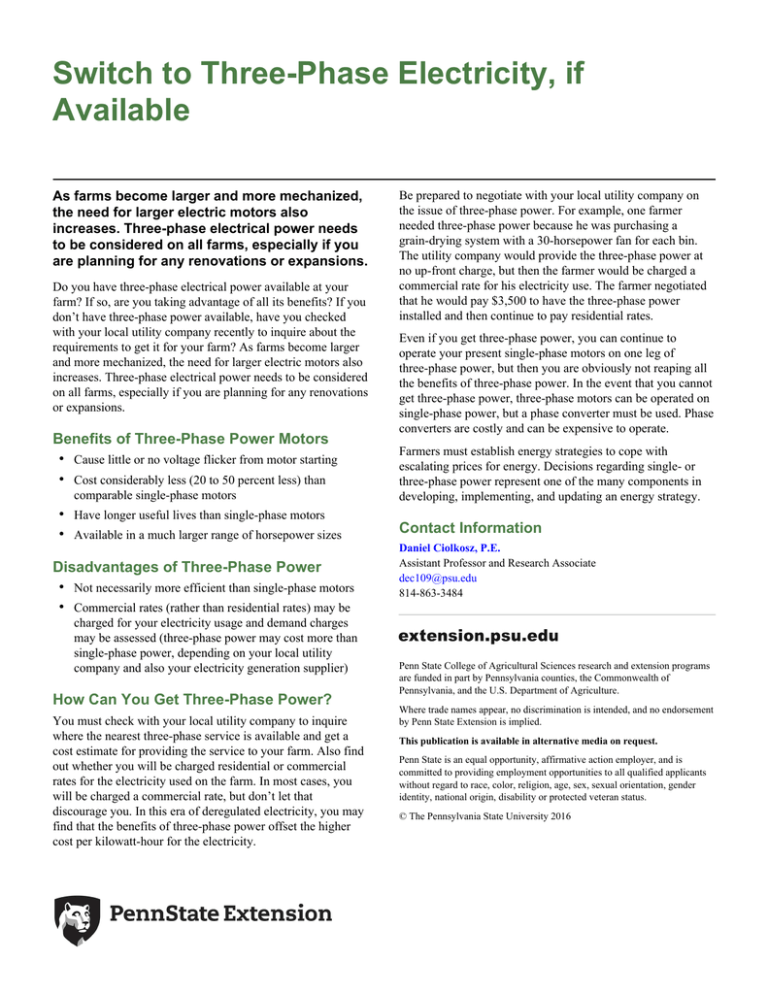
Switch to Three-Phase Electricity, if Available As farms become larger and more mechanized, the need for larger electric motors also increases. Three-phase electrical power needs to be considered on all farms, especially if you are planning for any renovations or expansions. Do you have three-phase electrical power available at your farm? If so, are you taking advantage of all its benefits? If you don’t have three-phase power available, have you checked with your local utility company recently to inquire about the requirements to get it for your farm? As farms become larger and more mechanized, the need for larger electric motors also increases. Three-phase electrical power needs to be considered on all farms, especially if you are planning for any renovations or expansions. Benefits of Three-Phase Power Motors • Cause little or no voltage flicker from motor starting • Cost considerably less (20 to 50 percent less) than comparable single-phase motors • Have longer useful lives than single-phase motors • Available in a much larger range of horsepower sizes Disadvantages of Three-Phase Power • Not necessarily more efficient than single-phase motors • Commercial rates (rather than residential rates) may be charged for your electricity usage and demand charges may be assessed (three-phase power may cost more than single-phase power, depending on your local utility company and also your electricity generation supplier) How Can You Get Three-Phase Power? You must check with your local utility company to inquire where the nearest three-phase service is available and get a cost estimate for providing the service to your farm. Also find out whether you will be charged residential or commercial rates for the electricity used on the farm. In most cases, you will be charged a commercial rate, but don’t let that discourage you. In this era of deregulated electricity, you may find that the benefits of three-phase power offset the higher cost per kilowatt-hour for the electricity. Be prepared to negotiate with your local utility company on the issue of three-phase power. For example, one farmer needed three-phase power because he was purchasing a grain-drying system with a 30-horsepower fan for each bin. The utility company would provide the three-phase power at no up-front charge, but then the farmer would be charged a commercial rate for his electricity use. The farmer negotiated that he would pay $3,500 to have the three-phase power installed and then continue to pay residential rates. Even if you get three-phase power, you can continue to operate your present single-phase motors on one leg of three-phase power, but then you are obviously not reaping all the benefits of three-phase power. In the event that you cannot get three-phase power, three-phase motors can be operated on single-phase power, but a phase converter must be used. Phase converters are costly and can be expensive to operate. Farmers must establish energy strategies to cope with escalating prices for energy. Decisions regarding single- or three-phase power represent one of the many components in developing, implementing, and updating an energy strategy. Contact Information Daniel Ciolkosz, P.E. Assistant Professor and Research Associate dec109@psu.edu 814-863-3484 Penn State College of Agricultural Sciences research and extension programs are funded in part by Pennsylvania counties, the Commonwealth of Pennsylvania, and the U.S. Department of Agriculture. Where trade names appear, no discrimination is intended, and no endorsement by Penn State Extension is implied. This publication is available in alternative media on request. Penn State is an equal opportunity, affirmative action employer, and is committed to providing employment opportunities to all qualified applicants without regard to race, color, religion, age, sex, sexual orientation, gender identity, national origin, disability or protected veteran status. © The Pennsylvania State University 2016

